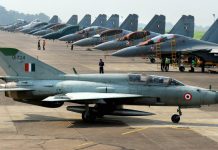The suicide bombing at a Quetta hotel hosting the Chinese ambassador to Pakistan raises deep concerns about the safety of foreign diplomats in the country.
And Pakistan, unfortunately, has a history of attacks and intimidation against foreign envoys by both state and non-state actors.
The latest terror attack came amid the demand for the expulsion of the French ambassador to Pakistan by a far-right Islamist group that resorted to widespread violence last week.
A deadly car bombing ripped through the parking area of Serena Hotel in Quetta, the capital of southwestern Balochistan province, late on Wednesday.
Chinese Ambassador Nong Rong was not present at the luxury hotel when the bomb went off, Pakistan’s Interior Minister Sheikh Rashid Ahmad was quoted as saying by Reuters news agency.
Five people were killed and 12 others injured in the suicide attack, for which the militant group Tehreek-e-Taliban Pakistan (TTP) claimed responsibility.
A Reuters reporter claims to have received a text message from TTP that said: “It was a suicide attack in which our suicide bomber used his explosives-filled car in the hotel.”
The Gwadar Port in Balochistan is a signature project under the China-Pakistan Economic Corridor, part of Beijing’s ambitious Belt and Road Initiative. However, the ethnic Balochis believe that Pakistan and China are exploiting resources in the region in a bid to colonize the province.
Condemning the attack, Chinese Foreign Ministry spokesperson Wang Wenbin was quoted as saying by The Guardian, “[We] believe the Pakistani side will bring the assailants to justice. China will continue to resolutely support Pakistan’s anti-terror effort … and promote regional peace and stability, and ensure the safety of Chinese personnel and organizations.”
In a tweet, the French embassy in Pakistan also condemned the terrorist attack.
We condemn the terrorist attack that hit #Serena Hotel in #Quetta causing 4 death and wounding many. Our deepest condolences to the families of the victims and wishes of prompt recovery to those wounded @ForeignOfficePk @GovtofPakistan pic.twitter.com/h6E1xgHI4P
— France in Pakistan (@FranceinPak) April 22, 2021
Expulsion Of French Ambassador
The Pakistani government gave in to the demands of the radical Tehrik-e-Labaik Pakistan (TLP) group and decided to table a resolution in the Parliament on whether the French ambassador should be expelled or not.
The TLP, which has been demanding the expulsion of the French envoy over the Prophet caricature issue, resorted to large-scale violence and held 11 policemen hostage, before releasing them last week.
French President Emmanuel Macron had defended the publication of the caricature of Prophet Muhammad and started an anti-radicalization campaign after a French teacher was beheaded for showing the caricature in class. The TLP, known for its anti-blasphemy movement, views these actions as being anti-Islamic.
History Of Attacks In Pakistan
This is not the first time that Pakistan has witnessed incidents of attacks and intimidation against foreign envoys. The country, which is home to several radical Islamist groups and militant organizations, has a history of such cases.
For Indian diplomats stationed in Pakistan, attack and intimidation are frequent occurrences.
“Pakistan’s (spy agency) ISI has been indulging in actions of harassment of Indian diplomats on a number of occasions in the past in retaliation of hiding their own inadequacies and their actions that they take on Indian soil,” former Indian diplomat Anil Wadhwa told ANI last year in the wake of alleged harassment of then Indian Charge d’Affaires Gaurav Ahluwalia by ISI agents in Islamabad.
In the past, the US diplomats had been targets for Islamic fundamentalists.
On 21 November 1979, Pakistani people, angered by a report that claimed that the US had bombed Islam’s holy site at Mecca, stormed the US embassy in Islamabad.
The Grand Mosque had suffered a terror attack, but the US was not involved. The U.S. diplomats survived by hiding in a reinforced area. Two US security personnel and two Pakistani staff members were killed in the attack.
In March 2006, a suicide attack killed a US diplomat and two others outside the American consulate.
In June 2002, a suicide bomber detonated a vehicle laden with explosives outside the US consulate in Karachi, killing 12 people.
Similarly, Pakistani Taliban militants mounted a multipronged assault against the US Consulate in the northern city of Peshawar in April 2010, using a truck bomb, machine guns, and rocket launchers. Six Pakistanis were killed and 20 wounded but no Americans were hurt.
On 19 November 1995, radicals attacked the Egyptian embassy in Islamabad, Pakistan which was believed to be in retaliation against the diplomatic staffers who were accused of gathering intelligence on radical elements inside Pakistan. It was the deadliest attack against the Egyptian government since it had been declared apostate three years earlier by Islamic militants
On 23 November 2018, an armed assault on the Chinese consulate in Karachi, Pakistan killed four people in an hour-long shootout. Those killed were two policemen, two Pakistani civilians, and three attackers.




